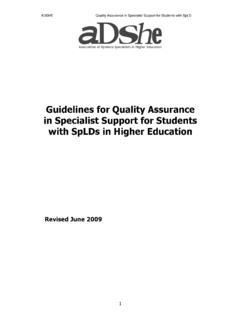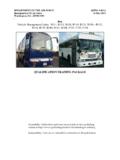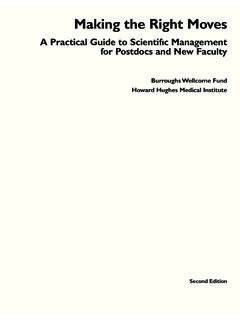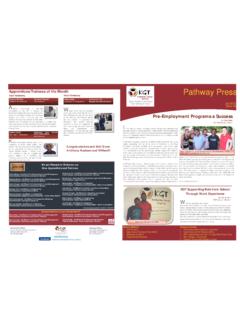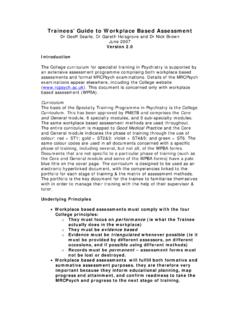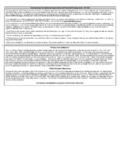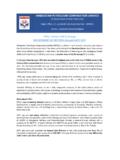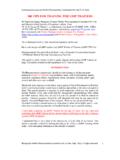Transcription of Supporting dyslexic trainees and teachers
1 Supporting dyslexic trainees and teachers1 This resource is the result of collaboration between the School of Education and Enabling Services (Dyslexia Support) at the University of Southampton. It is aimed at helping dyslexic trainee and qualified teachers . While there are many resources to help teachers of dyslexic students, there are fewer to support the teacher who is dyslexic ! It explores some of the challenges facing this group and includes a range of strategies for dyslexic teachers to draw upon in and outside the of the strategies are ones tried and tested by teachers in schools or colleges and were collected through an on-line survey and from a small focus group. It also considers aspects such as disclosure and what the dyslexic teacher might ask for in the way of support from their are grateful to those teachers in the primary, secondary and further education sectors who took the time to respond to a questionnaire, attend a focus group or speak to us personally to share their experiences.
2 Some of the very best trainees that I have seen through the PGCE at Southampton have dyslexia. It is not a barrier to teaching! However, some dyslexic teachers have asked for advice about how to make the most of their attributes within the classroom and I hope that this does just that! Kate Green, PGCE Secondary Programme Director It (dyslexia) forces me to think outside the box; to find ways of using new technology to teach. To include everyone in a way that didn t happen to me. Edward Vickerman, Winner of the SSAT Award for Outstanding New teacher of the Year, 20092 ContentsDyslexia and the dyslexic teacher 4 How dyslexia might affect the trainee teacher 4 A definition of dyslexia 4 Possible difficulties for the dyslexic teacher 6 Wider challenges 6 Dyslexia and the law 6 Disclosure 7 The teachers responses to the survey questions 7 Did you consider whether dyslexia would have an impact on your teaching?
3 7 Did you disclose your dyslexia? 8 Has dyslexia caused you any difficulty? 9 How significant have the effects of dyslexia been on your teaching? 11 What strategies and resources have you developed or found useful to support your teaching? 11 Strategies for dyslexic teachers 12 Spelling and writing 12 Marking and writing reports 14 Reading 16 Lesson planning (and delivery) 17 Record keeping and organisation 19 Taking a register 20 Remembering names 21 What reasonable adjustments do you consider a school could provide to support a dyslexic teacher ? 22 Do you consider that being dyslexic gives you advantages as a teacher ? 24 Special arrangements for the Skills Tests 25 Further information and resources 26 3 Dyslexia and the dyslexic teacherWhile dyslexia in a teacher may present challenges, as the responses showed fostering a proactive approach can go a long way to help to overcome difficulties.
4 The individuals who shared their concerns and achievements were a mix of PGCE trainees , newly qualified teachers , and qualified teachers with several years of experience, all with one thing in common dyslexia. The views expressed are taken from teachers and tutors from all sectors of education to further education level; the majority teaching the 11-18 age range. They represent a wide range of subjects areas including English, catering, drama, geography, ICT, physical education, PHSE, maths and the sciences. The response from this group showed the use of a great variety of strategies and is key for any teacher assessed as being dyslexic . Indeed, dyslexia can be viewed as a strength, providing the teacher has an awareness of their own profile and an understanding of how to turn around a difficulty.
5 As the responses show, the development of effective compensatory strategies can make those with dyslexia every bit as and sometimes more effective than their non- dyslexic dyslexia might affect the trainee teacherDyslexia is a wide term and can vary from mild to severe in its effects. Not all trainee teachers assessed as dyslexic will face difficulties. Many trainees develop sound strategies at university which can be transferred to the teaching workplace. As is the case for anyone, being aware of strengths and weaknesses and thinking ahead will help when facing the challenges of a placement or new teaching post. A definition of dyslexiaDyslexia is a combination of abilities and difficulties; the difficulties affect the learning process in aspects of literacy and sometimes numeracy. Coping with required reading is generally seen as the biggest challenge at higher education level due in part to difficulty in skimming and scanning written material.
6 A student may also have an inability to express his/her ideas clearly in written format and in a style appropriate to the level of study. Marked and persistent weaknesses may be identified in working memory, speed of processing, sequencing skills, auditory and/or visual perception, spoken language and motor skills. Visuo-spatial skills, creative thinking and intuitive understanding are less likely to be impaired and indeed may be outstanding. Enabling or assistive technology is often found to be very beneficialThe DfES Working Group on SpLD in Higher Education (2005) Possible difficulties for the dyslexic teacher - Spelling- Writing on a whiteboard- Report writing- Remembering names of pupils/staff/parents- Remembering dates- Organisation and time management - Lesson planning- Checking written work - Reading documents 4 Wider challenges- Colleagues who do not understand the nature of dyslexia- Questioning of competence from other teachers , pupils or parents- Low self confidence in writing.
7 Reading or maths- A lack of support from mentors or senior staff dyslexic people may have these strengths - Particular empathy with dyslexic pupils- Skills in visual and spatial awareness- Creative and imaginative skills- Problem solving abilities- Awareness of multi-sensory teaching techniques - Determination Dyslexia and the lawThe law recognises dyslexia as a disability if it has a substantial and long-term adverse effect on normal day-to-day activities . The Equality Act 2010, the most recent legislation, emphasises the need for organisations to be proactive in meeting the needs of both disabled pupils and staff. Public bodies such as local authorities, hospitals, universities and schools are now required to publish an action plan to show how they will proactively address disability, including dyslexia, to create equal opportunities among extent to which employers are dyslexia sensitive varies.
8 Although dyslexia is increasingly talked about and recognised, not everyone, even in an educational institution, will have a clear understanding of what dyslexia means. Also, the level of support is likely to be less than at university. trainees with dyslexia would be wise to consider how this might impact on their work and what steps they can take to avoid running into teachers responsesThe following outlines the survey questions and responses from trainee and qualified teachers . Comments from the participants, have been reproduced with as little editing as possible so that their voice is heard. Additional information draws upon a range of resources including the dyslexic teachers Association Did you consider whether dyslexia would have an impact on your teaching? Over two thirds of respondents had considered or were considering how dyslexia might have an impact on their teaching.
9 The type of response varied from those who felt confident in their ability to overcome dyslexia to others who felt quite challenged. My dyslexia was not picked up on until my degree, but I remember the difficulties I had in school. From the experience I had, I hope to be able to spot specific learning difficulties and special educational needs in was worried that I would make a fool of myself in front of went into teaching age 30, fully aware that my dyslexia would be challenging for me, but confident enough in my abilities that it would not prevent me from doing the job felt it would take me longer to prepare lessons, especially when schemes of work/ lessons aren t in place. When creating a lesson there are so many different ideas and ways in which to present them, that it can be hard to choose which to was initially concerned, until I had a new assessment for my dyslexia, during this it came apparent that I had lots of strategies that would help me overcome any barriers in school.
10 It would give me an understanding of children with disabilities Yes, the amount of paperwork also reading aloud and worry about spelling on the board, but would make sure I was well worry about spelling on the board, but would make sure I was well should also think about disclosing to any future employer and what adjustments they can reasonably ask to be made. Disclosure is not compulsory by law, but it is probably wise to consider the possible consequences of not disclosing, and to bear in mind that the employer would be unable to offer any support unless aware of a teacher s dyslexia. When disclosing dyslexia, an honest approach is suggested but trainees should also focus on the positives by outlining any compensatory and supportive strategies they have developed. They might also consider how a future employer could support them through reasonable adjustments.

